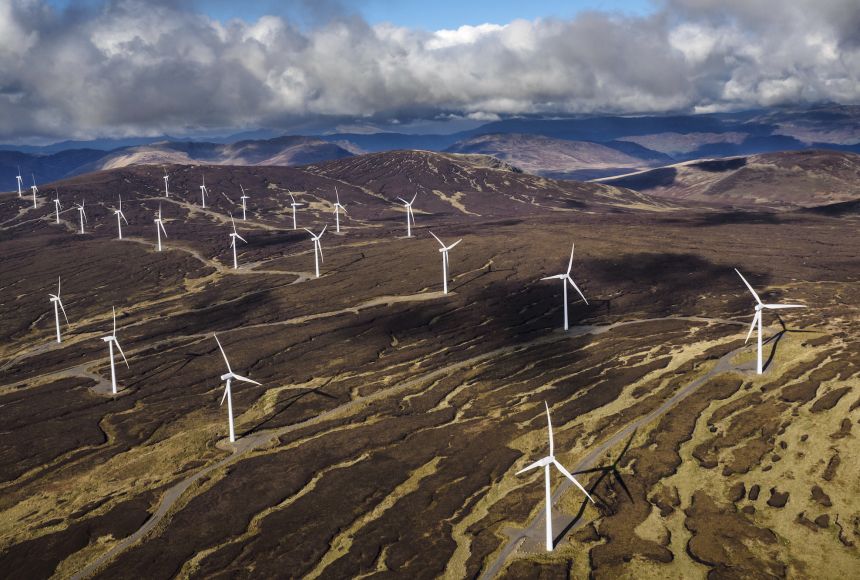Renewable Energy Explained
Solar, wind, hydroelectric, biomass, and geothermal power can provide energy without the planet-warming effects of fossil fuels.
Braes of Doune Wind Farm
As of 2017, wind turbines, like the Braes of Doune wind farm near Stirling, Scotland, are now producing 539,000 megawatts of power around the world—22 times more than 16 years before. Unfortunately, this renewable, clean energy generator isn't perfect.
In any discussion about climate change, renewable energy usually tops the list of changes the world can implement to stave off the worst effects of rising temperatures. That's because renewable energy sources, such as solar and wind, don't emit carbon dioxide and other greenhouse gases that contribute to global warming.
Clean energy has far more to recommend it than just being "green." The growing sector creates jobs, makes electric grids more resilient, expands energy access in developing countries, and helps lower energy bills. All of those factors have contributed to a renewable energy renaissance in recent years, with wind and solar setting new records for electricity generation.
For the past 150 years or so, humans have relied heavily on coal, oil, and other fossil fuels to power everything from light bulbs to cars to factories. Fossil fuels are embedded in nearly everything we do, and as a result, the greenhouse gases released from the burning of those fuels have reached historically high levels.
As greenhouse gases trap heat in the atmosphere that would otherwise escape into space, average temperatures on the surface are rising. Global warming is one symptom of climate change, the term scientists now prefer to describe the complex shifts affecting our planet’s weather and climate systems. Climate change encompasses not only rising average temperatures but also extreme weather events, shifting wildlife populations and habitats, rising seas, and a range of other impacts.
Of course, renewables—like any source of energy—have their own trade-offs and associated debates. One of them centers on the definition of renewable energy. Strictly speaking, renewable energy is just what you might think: perpetually available, or as the United States Energy Information Administration puts it, "virtually inexhaustible." But "renewable" doesn't necessarily mean sustainable, as opponents of corn-based ethanol or large hydropower dams often argue. It also doesn't encompass other low- or zero-emissions resources that have their own advocates, including energy efficiency and nuclear power.
